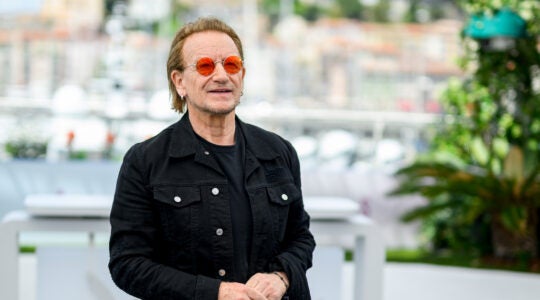
Jennifer Gorovitz will be the New Israel Fund’s vice president for operations and administration. (Jewish Community Federation)
(J. the Jewish news weekly of Northern California) — Jennifer Gorovitz, who stepped down last year as CEO of the San Francisco-based Jewish Community Federation to return to practicing law, is stepping back into the world of Jewish communal service.
On Tuesday, the Berkeley, California, resident will join the New Israel Fund as vice president for operations and administration.
When that occurs, the New Israel Fund will have had three former CEOs of the San Francisco-based federation move in to top leadership positions: Brian Lurie had been president until this summer (Talia Sasson is the current NIF president) and Daniel Sokatch is the current CEO. They led the San Francisco federation from 1974 to 1991 and from July 2008 to September 2009, respectively.
So what is it about this particular federation that has nurtured so many executives for the New Israel Fund, a nonprofit that funds progressive, pluralistic organizations in Israel? Gorovitz thinks it might, in part, have to do with the federation’s longstanding ties with Israel and promoting pluralism there.
“Brian, Daniel and I are people who care deeply about and had significant relationships with Israel before we joined the federation,” she said. “The federation nurtured our ability to deepen that engagement. NIF allows us to deepen that engagement completely, partnering with Israelis to help Israel be the strongest democracy it can be.”
READ: Black, Jewish and challenging ideas about the face of federation
As to why she has chosen to return to the Jewish communal work, Gorovitz told J., “After 16 months away, I missed being more immersed in the community. I was having conversations with rabbis and others about where I might plug into the community again, and how I might be able to make a difference.”
She also said she had reached what she called a “pivot point” in terms of her relationship to Israel.
“I had become increasingly concerned about Israel’s ability to sustain a liberal democracy as its government moves further to the right,” she said. “I decided rather than fret about it, I would jump in with both feet and work on the issues that are the mainstay of Israel’s Declaration of Independence and what the NIF stands for.”
After a long career as an attorney representing nonprofit organizations, Gorovitz served the federation in various capacities, including chief operating officer. In September 2009, she was named interim CEO after Sokatch left. Eight months later she was named permanent CEO, becoming the first woman to head one of North America’s 20 largest Jewish federations. She stepped down in March 2014.
With NIF, Gorovitz will oversee the internal management of operations. Replacing outgoing Executive Vice President David Rosenn, she will work in the NIF’s San Francisco office alongside Sokatch, vice president for national development Steve Rothman and other regional staff.
READ: New federation CEOs experimenting with funding models
Said Sokatch, “At a time when NIF is growing in terms of staff, revenues and the complex challenges we face, I can’t overstate how important it is that we have an experienced professional administering NIF. Jennifer’s skills as a strategist and problem-solver are what NIF needs to take the next steps in our development and to expand our impact.”
Over the years, the liberal NIF has faced critics in Israel and the United States who accuse it of funding organizations that are soft on terror. Some NIF grantees serve the Arab-Israeli population and/or Palestinians in the West Bank.
Gorovitz shrugged off the criticism, saying NIF is about finding “a shared path” for Israeli Jews and their non-Jewish neighbors, including Druze, Bedouin and Palestinians.
“The work of NIF grantees makes sure people within Israel’s borders are treated fairly,” she said. “We continue to build bridges between the different societies in Israel as a buffer against extremism. The more Israel looks like a Western democracy — where dissent, debate, justice and equality are valued — the less likely America is to distance itself from Israel over the long term.”
JTA has documented Jewish history in real-time for over a century. Keep our journalism strong by joining us in supporting independent, award-winning reporting.





